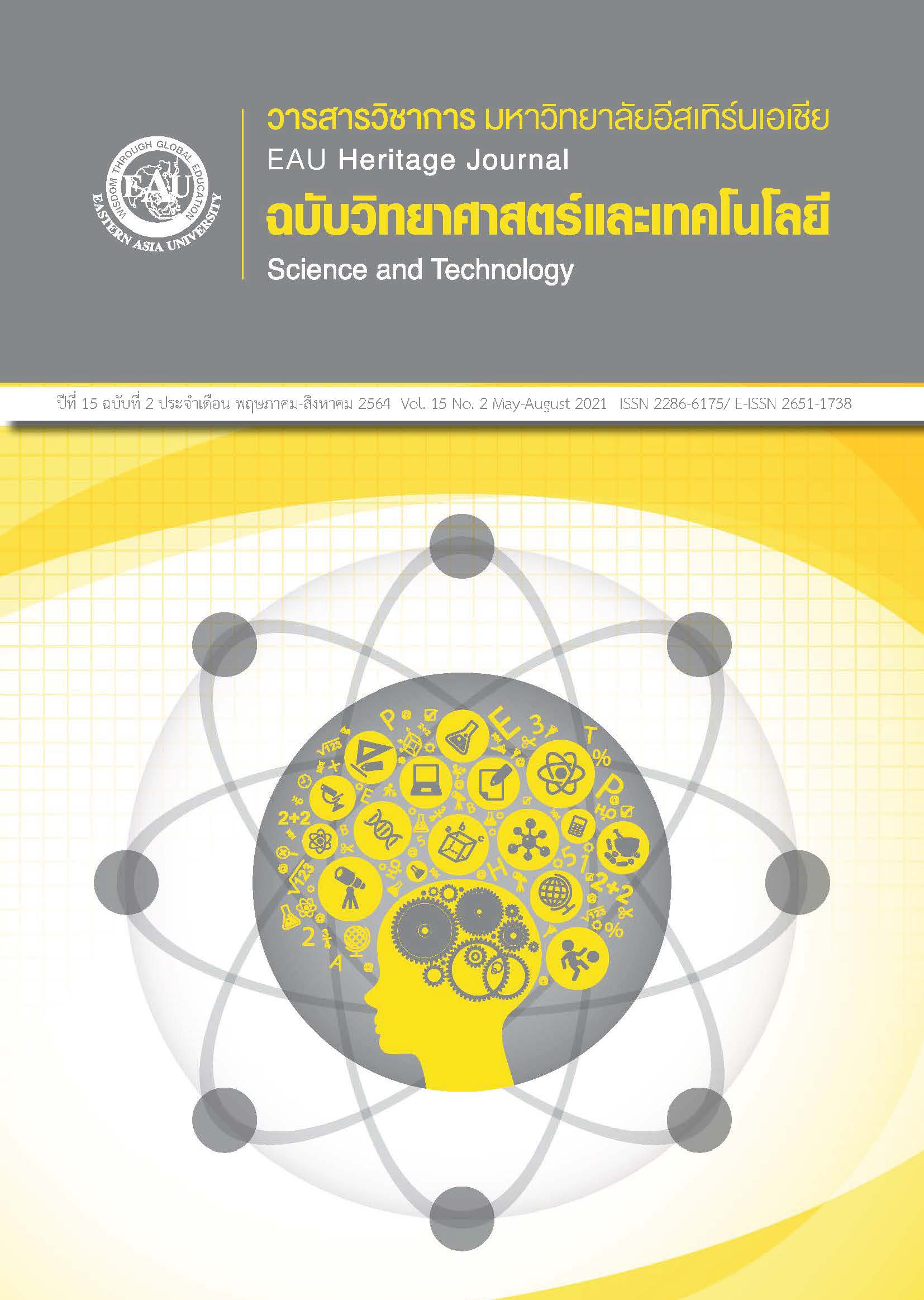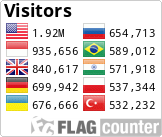ประสิทธิผลของโปรแกรมเสริมสร้างพลังอำนาจประยุกต์ใช้ผ่านสื่อสังคมออนไลน์ เพื่อปรับเปลี่ยนพฤติกรรมการป้องกันโรคติดเชื้อไวรัสโคโรนา 2019 ในบุคลากร มหาวิทยาลัยราชภัฏพิบูลสงคราม
คำสำคัญ:
Empowerment program, COVID-19 prevention behaviors, Social Mediaบทคัดย่อ
การวิจัยกึ่งทดลองนี้มีวัตถุประสงค์เพื่อศึกษาประสิทธิผลของโปรแกรมเสริมสร้างพลังอำนาจประยุกต์ใช้ผ่านสื่อสังคมออนไลน์เพื่อปรับเปลี่ยนพฤติกรรมการป้องกันโรคติดเชื้อไวรัสโคโรนา 2019 ในบุคคลากรมหาวิทยาลัยราชภัฏพิบูลสงคราม กลุ่มตัวอย่าง คือ บุคคลากร มหาวิทยาลัยราชภัฏพิบูลสงคราม จำนวน 100 คน แบ่งเป็นกลุ่มทดลองและกลุ่มควบคุม กลุ่มละ 50 คน กลุ่มทดลองได้เข้าร่วมโปรแกรมเสริมสร้างพลังอำนาจประยุกต์ใช้ผ่านสื่อสังคมออนไลน์เพื่อปรับ เปลี่ยนพฤติกรรมการป้องกันโรคติดเชื้อไวรัสโคโรนา 2019 เป็นเวลา 12 สัปดาห์ เก็บข้อมูลด้วยแบบสอบถามเกี่ยวกับพฤติกรรมการป้องกันโรคติดเชื้อไวรัสโคโรนา 2019 สถิติที่ใช้สำหรับวิเคราะห์ข้อมูล ได้แก่ ความถี่ ร้อยละ ค่าเฉลี่ย ส่วนเบี่ยง เบนมาตรฐาน Independent Sample t-test และ Paired Sample t-test ผลการวิจัยพบว่า กลุ่มทดลองและกลุ่มควบคุม ก่อนได้รับโปรแกรมเสริมสร้างพลังอำนาจประยุกต์ใช้ผ่านสื่อสังคมออนไลน์เพื่อปรับเปลี่ยนพฤติกรรมการป้องกันโรคติดเชื้อไวรัสโคโรนา 2019 มีคะแนนพฤติกรรมการป้องกันโรคติดเชื้อไวรัสโคโรนา 2019 อยู่ในระดับ ปานกลาง ร้อยละ 94.0 และ ร้อยละ 96.00 ตามลำดับ โดยหลังการทดลองกลุ่มทดลองมีคะแนนพฤติกรรมการป้องกันโรคติดเชื้อไวรัสโคโรนา 2019 สูงกว่าก่อนการทดลอง และสูงกว่ากลุ่มควบคุมอย่างมีนัยสำคัญที่ระดับ .05 จึงสรุปว่า โปรแกรมเสริมสร้างพลังอำนาจประยุกต์ใช้ผ่านสื่อสังคมออนไลน์เพื่อปรับเปลี่ยนพฤติกรรมการป้องกันโรคติดเชื้อไวรัส โคโรนา 2019 ทำให้พฤติกรรมการป้องกันโรคติดเชื้อไวรัสโคโรนา 2019 สูงขึ้นอย่างมีนัยสำคัญที่ระดับ .05
เอกสารอ้างอิง
Cohen, J. (1988). Statistical power analysis for behavioral sciences (2nd ed.). Hillsdalw, NJ: Lawrence Erlbaum.
Department of Disease Control, Ministry of Public Health. (2021). COVID-19 situation report last updated: 18/01/2021 18:00. Retrieved from https://ddc.moph.go.th/viralpneumonia/index.php/ (in Thai).
Gibson, C. H. (1993). A study of empowerment in mother of chronically ill children (Doctoral’s dissertation). Boston college. Boston.
Gibson C. H. (1995). The process of empowerment in mothers of chronically ill children. Journal of advanced nursing, 21(6), 1201–1210. https://doi.org/10.1046/j.1365-2648.1995.21061201.x
Glomjai, T., Kaewjiboon, J., & Chachvarat, T. (2020). Knowledge and behavior of people regarding self-care prevention from Novel Coronavirus 2019 (COVID-19). Journal of Nursing, Public Health, and Education, 21(2), 29-39. (in Thai).
Greety, M., & Sumual, V. (2014). Effect of empowerment, self efficacy, and lecturer to proffession's commitment of The Manado State University. International Journal of Business and Management Invention, 3(5), 18-27. http://www.ijbmi.org/papers/Vol(3)5/Version-4/C0354018027.pdf
Jaemtim, N, Yuenyong, S., & Srisodsaluk, P. (2016). Effect of the empowerment program on the prevention of hypertension disease in the population at risk of hypertension disease of Tombon Chokchram, Umphor Bangplama, Suphanburi Province. The Journal of Baromarajonani College of Nusing, Nakhonratchasima, 22(1), 65-76. (in Thai).
Jump, N. (1978). Psychometric theory (2nd ed.). New York: McGraw Hill.
Khanitaphilak, J., Khampolsiri, T., & Pothiban, L. (2020). The effect of an empowerment program on quality of life among older persons with stroke. Nursing Journal, 47(1), 222-230. (in Thai).
Naewbood, S. (2015). Effects of empowerment program on self-care ability of a family caregiver, Journal of Nursing and Education, 8(4), 30-40. (in Thai).
Phamat, Y. (2010). Empowering people to prevention and control dengue hemorrhagicfever, Donchan District, Kalasin Province (Master’s thesis). Burapha University. Chonburi. (in Thai).
Rovinelli, R. J., & Hambleton, R. K. (1977). On the use of content specialists in the assessment of criterion-referenced test item validity. Dutch Journal of Educational Research, 2(1), 49-60. https://eric.ed.gov/?id=ED121845
Suthitham, P. (2011). Effect of an empowerment program for village health volunteers on the caregiving ability perception for the elderly with chronic diseases in the community (Master’s thesis). Burapha University. Chantaburi. (in Thai).
Wae, A. (2020). COVID-19 and learning to change healthy behavior today. Journal of the Health Professional Association, 35(1), 24-29. (in Thai).
World Organisation for Animal Health. (2020). Questions and answers on COVID-19. Retrieved from http://www. oie.int/scientific-expertise/specific-information-and-recommendations/questions-and-answers-on-2019novel-coronavirus/







